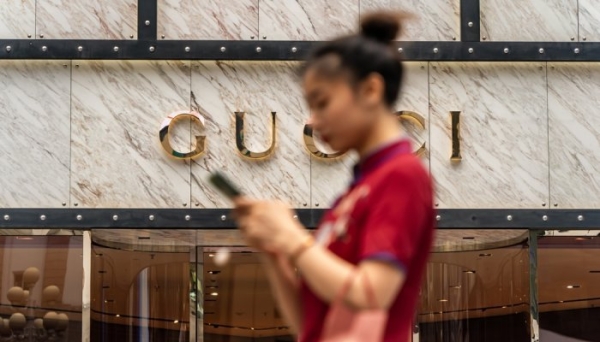
The series of stimulus measures announced this week by Beijing is blowing a wind of optimism for global growth, of which China is a driving force. While the effectiveness of the actions implemented remains to be confirmed, global stock markets and the sectors most dependent on the Chinese market, starting with luxury, have regained a certain optimism.
China this week unveiled a bundle of new measures aimed at kickstarting its economy, battered by unprecedented headwinds including a property sector crisis and sluggish spending. The stimulus followed warnings that more state support was needed to get the world’s second-largest economy back on track and hit growth targets for 2024.
Unprecedented headwinds
Accustomed to expansion rates above 7% since the early 2000s, China has been the engine of global growth by becoming a very powerful outlet for products sold by foreign companies as well as the world’s workshop. The country alone accounted for nearly 15% of the world’s trade in 2020, according to the UN.
However after a strong slowdown linked to the pandemic, China is in the grip of an unprecedented crisis in its vast real estate sector, as well as gloomy confidence among households and businesses, which is penalizing consumption, while geopolitical tensions with the US and the European Union threaten its foreign trade.
In its latest global forecasts published on Tuesday, the Organisation for Economic Co-operation and Development (OECD) pointed to a consumer demand that “remains modest” and “a protracted correction in the real estate sector” as the main impediment to growth in the country, which the government forecasts to reach 5% in 2024.
Back to optimism?
Without this powerhouse, and despite the dynamism of the United States, the global economy has struggled to recover since the pandemic, especially since inflation and interest rate increases over the last four years have weighed heavily on most regions. But the Chinese recovery and the gradual decline in interest rates around the world could give cause for optimism.
China’s announcements are good news for many international companies, in particular those operating in the sectors that are highly dependent on Chinese consumption. This is, of course, the case of the major players in the luxury industry, who sell a lot of their products to the country.
LVMH, the world’s leading seller of luxury goods, soared by almost 18% over the whole week on the Paris stock market. Richemont, owner of Cartier, gained 17%.
China’s measures “should be good news for commodity producers, stocks with links to the Chinese and Hong Kong property market, and European companies that sell to the Chinese consumer”, said Kathleen Brooks, research director at broker XTB. “This package could help the beleaguered German luxury car sector along with French luxury goods houses,” she added.
Big uncertainties remain
However, many analysts believe it is too early to return to optimism.
This fresh stimulus “does not solve the country’s structural problems: youth unemployment has exploded, consumption has collapsed, real estate market in crisis,” commented Nicolas Forest, head of investments at Candriam.
In addition to China’s internal difficulties, other factors could also weigh on the world’s second largest economy, first and foremost the US elections and the risk of massive customs tariffs targeting its exports.
In a note analysing the impact of the measures announced by Beijing this week, economists at the US bank Goldman Sachs kept unchanged their growth forecasts at 4.7% this year and 4.3% next year, pointing to uncertainty “about the extent and effectiveness of the stimulus”, and the American elections.
As far as the cosmetics sector is concerned, Marc-Antoine Jamet, President of Cosmetic Valley, one of the world’s leading hubs in the beauty industry, said to the press gathered ahead of the Cosmetic 360 trade show, that tensions remain strong with China regarding regulations, as well as regarding the risk of “luxury being taken hostage” in trade disputes.
